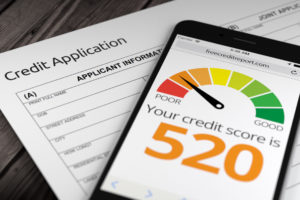The Ultimate Guide: 5 Steps to Homeownership with Poor Credit
Understanding Your Credit Situation
What is a Poor Credit Score?
A poor credit score is typically a score below 580 on the FICO scale, which ranges from 300 to 850. Having a low credit score can make it more challenging to secure a mortgage and buy a home, but it doesn’t mean it’s impossible. Understanding your credit situation is the first step toward homeownership.
Factors Affecting Your Credit Score
Several factors can impact your credit score, including:
- Payment history
- Amounts owed
- Length of credit history
- New credit accounts
- Types of credit used
By identifying the factors affecting your credit, you can develop a plan to improve it.
Repairing Your Credit
Obtain a Copy of Your Credit Report
The first step in repairing your credit is to obtain a copy of your credit report from each of the three major credit bureaus (Equifax, Experian, and TransUnion). You can request a free annual credit report from AnnualCreditReport.com.
Dispute Inaccuracies
Review your credit reports carefully and dispute any inaccuracies or errors. Incorrect information on your credit report can negatively impact your credit score.
Pay Down Debt and Maintain Low Balances
Paying down existing debt and maintaining low balances on credit cards can significantly improve your credit score. Aim to keep your credit utilization ratio below 30%.
Establish a Payment History
Consistently making on-time payments is essential for building a solid payment history. Consider setting up automatic payments to ensure timely payments.
Exploring Homeownership Options
FHA Loans
FHA loans are backed by the Federal Housing Administration and offer more lenient credit requirements. Borrowers with a credit score of 500 to 579 can qualify for an FHA loan with a 10% down payment, while those with a credit score of 580 or higher can qualify with a 3.5% down payment.
VA Loans
Veterans and active-duty service members may qualify for VA loans, which are backed by the Department of Veterans Affairs. VA loans do not have a minimum credit score requirement, but lenders may have their own credit score criteria. These loans typically do not require a down payment or mortgage insurance, making them an attractive option for those with poor credit.
USDA Loans
USDA loans are backed by the United States Department of Agriculture and are designed to help low-to-moderate-income buyers purchase homes in rural areas. These loans do not require a down payment and offer competitive interest rates. While the USDA does not have a specific minimum credit score requirement, most lenders require a score of at least 640.
Non-Qualified Mortgage Loans
Non-Qualified Mortgage (Non-QM) loans do not meet the strict guidelines set by government-backed loans. These loans often have more flexible underwriting standards, making them a viable option for borrowers with poor credit. However, they may have higher interest rates and less favorable terms than government-backed loans.
Saving for a Down Payment and Closing Costs
Even with poor credit, having a sizable down payment can increase your chances of securing a mortgage. A larger down payment reduces the amount you need to borrow and can lower your monthly mortgage payment. Additionally, some lenders may be more willing to work with borrowers who can demonstrate financial responsibility through saving for a down payment.
Closing costs are another expense to consider when purchasing a home. These costs typically range from 2% to 5% of the loan amount and include expenses like appraisal fees, title insurance, and loan origination fees. Be sure to budget for these costs in addition to your down payment.
Preparing Your Mortgage Application
Once you have improved your credit and saved for a down payment, it’s time to prepare your mortgage application. Gather all necessary documentation, such as:
- Employment history and income verification
- Bank statements
- Tax returns
- Credit reports
- Documentation of any additional assets or income
Presenting a well-organized, complete application can help demonstrate your financial responsibility to potential lenders and increase your chances of securing a mortgage.
Conclusion
While poor credit can make homeownership more challenging, it is not insurmountable. By understanding your credit situation, taking steps to repair your credit, exploring various loan options, saving for a down payment, and preparing a strong mortgage application, you can successfully navigate the path to homeownership.
FAQs
1. What is considered a poor credit score?
A poor credit score is generally considered to be below 580 on the FICO scale, which ranges from 300 to 850.
2. How can I improve my credit score?
Some steps to improve your credit score include obtaining and reviewing your credit reports, disputing inaccuracies, paying down debt, maintaining low credit card balances, and establishing a consistent payment history.
3. What types of loans are available to borrowers with poor credit?
Borrowers with poor credit may qualify for FHA loans, VA loans, USDA loans, or non-qualified mortgage loans, depending on their individual circumstances and eligibility.
4. How much should I save for a down payment and closing costs?
A down payment typically ranges from 3.5% to 20% of the purchase price, depending on the loan type. Closing costs generally range from 2% to 5% of the loan amount. It’s essential to budget for both expenses when planning for homeownership.
5. What documentation do I need for a mortgage application?
Typical documentation required for a mortgage application includes employment history and income verification, bank statements, tax returns, credit reports, and documentation of any additional assets or income.
6. Can I still get a mortgage with a poor credit score?
Yes, it is possible to get a mortgage with a poor credit score, but your options may be limited, and you may face higher interest rates or less favorable loan terms. By working on improving your credit score and exploring various loan options, you can increase your chances of securing a mortgage.
7. How long does it take to improve my credit score?
The time it takes to improve your credit score can vary depending on your individual situation and the factors affecting your credit. Consistently making on-time payments, paying down debt, and maintaining low credit card balances can help improve your credit score over time. Generally, it can take several months to a few years to see significant improvements.
8. Can I buy a house with no down payment?
Some loan programs, such as VA loans and USDA loans, allow eligible borrowers to purchase a home with no down payment. However, these loans may have specific eligibility requirements, and not all borrowers will qualify. It’s essential to research and understand the various loan programs available to determine the best option for your situation.
9. How can I find a lender that works with borrowers with poor credit?
To find a lender that works with borrowers with poor credit, you can start by reaching out to local banks and credit unions, as they may have more flexible lending criteria. Additionally, you can consult with a mortgage broker who can help connect you with lenders that specialize in working with borrowers with less-than-perfect credit.
10. How can I increase my chances of getting approved for a mortgage with poor credit?
To increase your chances of getting approved for a mortgage with poor credit, focus on improving your credit score, saving for a sizable down payment, and preparing a thorough, well-documented mortgage application. Demonstrating financial responsibility and stability can help sway potential lenders to approve your mortgage application despite your poor credit.
11. What other factors do lenders consider when evaluating a mortgage application?
In addition to your credit score, lenders consider factors such as your debt-to-income (DTI) ratio, employment history, and the loan-to-value (LTV) ratio when evaluating a mortgage application. A lower DTI ratio and stable employment history can demonstrate financial responsibility, while a lower LTV ratio (achieved through a larger down payment) can minimize the lender’s risk.
12. Can a co-signer help me get a mortgage with poor credit?
A co-signer with a strong credit score and stable income can help you qualify for a mortgage if your credit is poor. However, having a co-signer comes with responsibilities for both parties. The co-signer is equally responsible for the mortgage payments, and their credit will also be impacted if payments are missed or late.
13. How can I maintain a good credit score after purchasing a home?
To maintain a good credit score after purchasing a home, make sure to continue making on-time payments for your mortgage and any other debts. Avoid taking on excessive new debt, maintain low credit card balances, and monitor your credit reports regularly for errors or inaccuracies.
14. Can I refinance my mortgage if my credit improves?
If your credit score improves after purchasing a home, you may be eligible to refinance your mortgage to secure a lower interest rate or more favorable loan terms. Refinancing can potentially save you money over the life of your loan. It’s important to carefully evaluate the costs associated with refinancing, such as closing costs and potential prepayment penalties, to determine if it’s the right option for you.
15. How can I ensure that I don’t fall behind on my mortgage payments?
To avoid falling behind on your mortgage payments, create a budget that includes your monthly mortgage payment, property taxes, homeowners insurance, and any other related expenses. Set up automatic payments for your mortgage, if possible, to ensure timely payments. Regularly monitor your financial situation and communicate with your lender if you’re struggling to make payments – they may be able to offer assistance or alternative payment options.

